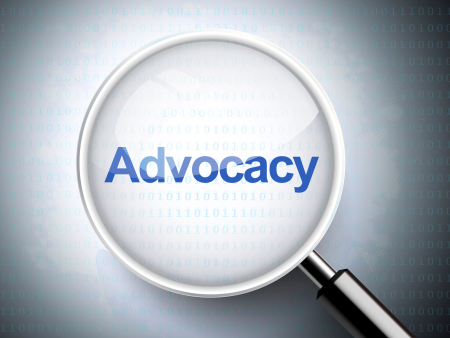
CRS Onboarding Package 2 - Beginner Plus
-
You must log in to register
- Non-Member - $108
- Individual Member - $54
- Silver Member - $54
- Gold Member - $54
- Platinum Member - $54
- Inform Canada Individual - $54
- Inform Canada Organization - $54
- Commercial Associate - $54
After completing the Beginner Basics, this package helps new Community Resource Specialists deepen their skills and knowledge in empowerment and advocacy, crisis intervention, follow-up, dealing with challenging callers, and general customer service provision. This package also includes a course on understanding diversity and intersectionality. These courses can be taken in any order. Packages are 10% cheaper than purchasing each course separately.
-
Contains 12 Component(s), Includes Credits
This course is ideal for beginners and also serves as an excellent review for more experienced Community Resource Specialists who need to understand more about crisis intervention within an I&R environment. Topics discussed include defining the nature of crisis, the search for coping mechanisms, and the types of crisis generally encountered within I&R.
This course covers all aspects of crisis intervention within an I&R environment. Topics discussed include defining the nature of crisis, the search for coping mechanisms, and the types of crisis generally encountered within I&R. It includes a crisis intervention model and the elements of a suicide risk assessment. The material is primarily geared for front-line staff at I&R services. It is not appropriate for crisis specialists but may be a practical primer for other professionals within health and human services.
-
Contains 3 Component(s), Includes Credits
Empowerment and advocacy are fundamental principles of information and referral. Empowerment will help individuals both now and in figure situations. Advocacy means assisting people who may need assistance getting the help they need. This interactive course is for Information and referral Specialists who handle human service inquiries from the public and the supervisors who oversee this essential work. It describes the nature of empowerment (helping people to help themselves) and advocacy (when people need additional support) within the context of I&R.
Empowerment and advocacy are fundamental principles of information and referral. Empowerment will help individuals both now and in figure situations. Advocacy means assisting people who may need assistance getting the help they need.
This interactive course is for Information and referral Specialists who handle human service inquiries from the public and the supervisors who oversee this essential work. It describes the nature of empowerment (helping people to help themselves) and advocacy (when people need additional support) within the context of I&R.
Learning Objectives
When you have successfully completed this course, you will be able to:
- Define the concept of empowerment within an I&R environment.
- Describe the meaning of advocacy in I&R.
- Identify situations in which advocacy is necessary.
- Recognize the difference between individual advocacy and system advocacy.
-
Contains 19 Component(s), Includes Credits
The core of your job is to help people – to “serve” them – to provide I&R customer service. A Community Resource Specialist may answer 100 calls in a busy day. But each call is the most important day for the person who makes it. The challenge is to respond to each of those 100 calls, as it was also the most important call of your day. Depending on organizational preferences and background, the people who contact I&R services may be referred to internally as “clients,” “inquirers,” “callers,” or “customers.”
The core of your job is to help people – to “serve” them – to provide I&R customer service.
A Community Resource Specialist may answer 100 calls in a busy day. But each of those calls is the most important call of the day for the person who makes it. The challenge is to respond to each of those 100 calls as it if was also the most important call of your day.
Depending on organizational preferences and background, the people who contact I&R services may be referred to internally as “clients”, “inquirers”, “callers” or “customers”.
This course is primarily for Community Resource Specialists.
When you have successfully completed this course, you will be able to:
- Describe the nature of “I&R customer service” and why it is important.
- Define the pivotal role attitude plays in the provision of quality I&R.
- Identify positive communication strategies.
- Outline the elements involved in opening and closing a call.
- Describe the importance of a continued commitment to improvement through ongoing training and regular supervisory feedback.
Other Courses:
Free Content:
-
Contains 10 Component(s), Includes Credits
Within I&R, follow-up is the process of contacting clients in order to determine whether their needs have been met as a result of the earlier referrals provided and if not, why not. Depending on the circumstances of the situation and the client, a Community Resource Specialist may choose to follow up with the client to ensure that the primary need of the individual was met. This follow-up is not conducted for every client but is at the discretion of the specialist and/or the policies of the I&R agency.
Within I&R, follow-up is the process of contacting clients in order to determine whether their needs have been met as a result of the earlier referrals provided and if not, why not. Depending on the circumstances of the situation and the client, a Community Resource Specialist may choose to follow up with the client to ensure that the primary need of the individual was met. This follow-up is not conducted for every client but is at the discretion of the specialist and/or the policies of the I&R agency.
-
Contains 17 Component(s), Includes Credits
This course is primarily for Community Resource Specialists. When you have successfully completed this course, you will be able to: Describe the range of clients who may be described as “challenging” for reasons other than the nature of the call. Outline techniques to defuse hostility and cope with challenging clients. Identify when your own feelings are being “triggered,” and you are at risk of losing control of the inquiry.
Information and Referral (I&R) specialists daily answer calls from vulnerable people in difficult situations. With experience, they handle these calls quite adeptly. This course is about those other calls. An I&R specialist must have the skills to meet the needs of all types of people in all situations, including people who are angry, hostile, manipulative, frequently call with the same problem, or are otherwise difficult to serve. This interactive course describes the range of “challenging” calls generally encountered within an I&R program, techniques for diffusing situations, setting boundaries, and if necessary, terminating calls.
This course is primarily for Community Resource Specialists but can be used for Database Curators who also take calls.
When you have completed this course, you will be able to:
- Describe the range of clients who may be described as “challenging” for reasons other than the nature of the call.
- Outline techniques to defuse hostility and cope with challenging clients.
- Identify when your feelings are being “triggered,” and you risk losing control of the inquiry.
-
Contains 17 Component(s), Includes Credits
This course explores the concepts of cultural awareness and sensitivity, diversity awareness and intersectionality, and serving people from different backgrounds with respect and empathy.
This course explores the concepts of cultural awareness and sensitivity, diversity awareness and intersectionality, and serving people from different backgrounds with respect and empathy.
I&R agencies aim to serve everyone and aim to serve everyone equally. Some people face ongoing systemic barriers to accessing services that relate to an ethnic/racial/religious/cultural background which creates additional vulnerability. They may sometimes require more help because of that vulnerability. It is essential to act with positive respect toward people from all backgrounds and circumstances. Nothing less is acceptable.
Other Courses:
- Service Delivery: LGBTQ+ Clients
- Service Delivery: Serving People With Disabilities
- Service Delivery: Empowerment and Advocacy in Information and Referral
FREE Content:
- The AIRS DEI Council: A Journey Through How We See Ourselves and Others
- AIRS DEI Symposium "Check Your Blind Spot!"
- AIRS Webinar - Sometimes Tricky and Potentially Awkward Situations - Better Understanding of and Service for the LGBTQ+ Community
- The “Cultural Awareness Tool”- A DEI Conversation
- AIRS Webinar -Immigration Issues 101
- Keynote Speaker Sonya Ware - Diversity, Equity and Inclusion At the Personal And Organizational Level
- AIRS Webinar - The Legacy of Racism in American Memory
- AIRS Webinar - The Origins and Impact of the Americans with Disabilities Act





